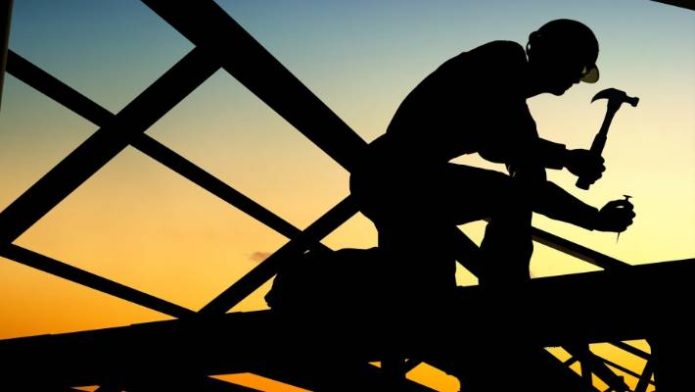PHOTO: Image by rawpixel.com
Plumbing and drainage systems play a crucial role in any structure, ensuring the safe and hygienic removal and disposal of wastewater. Without a well-maintained plumbing and drainage system, contamination can pose health risks and have adverse environmental consequences. This article aims to provide an overview of plumbing and drainage, the common causes of plumbing and drainage problems, the signs of the problem, the benefits of hiring a plumber, how to choose a reliable plumber, and the preparation for the visit.
Common Causes of Plumbing and Drainage Problems
- Clogs
- Leaks
- Defective Installation or Repair Work
Plumbing and drainage issues can be a significant source of stress and financial strain for homeowners, often necessitating costly repairs. The root causes of these problems typically include clogs, leaks, and inadequately executed installations or repairs. Recognizing these causes is essential for preempting plumbing issues.
Clogs stand out as one of the most frequent culprits behind plumbing and drainage problems. Obstructions can result from hair, grease, dirt, or even invasive tree roots infiltrating the system. Unresolved clogs can lead to sewage backups or overflowing drains. To ward off clogs, homeowners should routinely inspect pipes for debris buildup and employ drain traps to catch potential blockage-causing objects.
Leaks are another common issue within plumbing systems. Corrosion of piping components or loose connections due to wear and tear can lead to leaks. Homeowners must conduct regular inspections to identify signs of corrosion or loose connections and prevent potential leaks.
Defective installation or repair work is also a common concern with plumbing systems, often leading to expensive repairs if not addressed correctly.
Recognizing Signs of a Plumbing or Drainage Problem
Homeowners should stay vigilant for signs of plumbing or drainage issues, as early detection can prevent costly future repairs. These signs may include:
Slow Drains: If your sinks and bathtubs are draining slowly, it could indicate a clog in your pipes or sewer line. Clogs can result from various sources, from hair and soap scum to objects flushed down the toilet. You can try over-the-counter chemical cleaners or seek professional assistance if necessary.
Foul Odors: Unpleasant odors emanating from your drains often signal issues within the pipes or blockage-causing substances that foster bacterial growth. Addressing these issues promptly is crucial to eliminate unpleasant smells.

The Benefits of Hiring a Professional Plumber to Resolve the Problem
While some homeowners attempt DIY fixes for plumbing issues, certain problems necessitate professional assistance. Here are the advantages of hiring a professional plumber:
Quality Work: Professional plumbers boast extensive experience and expertise, delivering results that meet industry standards. They can quickly and effectively diagnose and repair issues without causing damage or disruption to your property, utilizing specialized tools to ensure correct and efficient repairs.
Cost Savings: Professional plumbers provide accurate upfront cost estimates, preventing unexpected expenses resulting from faulty repairs or incorrect parts. Additionally, professional services often come with warranties, ensuring your peace of mind and potential cost savings in case of post-repair issues.
Key Considerations When Choosing a Plumber
Plumbing is a fundamental component of any home’s infrastructure, and selecting the right plumber is a decision of significant importance. Finding a dependable and trustworthy plumber can be a challenging task, as several factors warrant consideration. Here are some guidelines for identifying a reliable plumber who will efficiently complete the job.
Research: Prior to making a plumber selection, conduct thorough research into their background, reputation, and qualifications. Examine online customer reviews to gauge satisfaction levels with past work performed by the plumber or their company. Seek personal recommendations from friends and family, and don’t hesitate to ask for referrals from trusted local contractors or suppliers.
Experience: Opt for a seasoned professional who has previously handled plumbing projects similar to yours. Experienced plumbers can offer informed guidance and effective solutions when addressing your plumbing issues. Inquire about candidates’ experience with various types of plumbing systems and inquire about any certifications or licenses that showcase their expertise in the field.
Cost: While cost shouldn’t be the sole determinant when choosing a qualified professional, it remains essential to gather quotes from several different companies. This allows you to make an informed comparison and assess the value offered by each.
Preparing for a Professional Plumber’s Visit
If you require professional plumbing services, it’s essential to prepare for the plumber’s arrival. Here are some tips to get ready for their visit:
First, ensure the area where the plumber will work is clear and devoid of clutter, removing any items that might obstruct their work. If possible, create a designated workspace for them.
Take note of any existing plumbing issues and changes in water pressure or temperature before the plumber’s arrival. Documenting these details will aid in a quicker diagnosis.
Gather all relevant documentation related to your plumbing system, such as installation instructions or warranty information, to assist the plumber in assessing the necessary repairs.
Conclusion
In summary, plumbing and drainage systems are indispensable for homes and businesses, ensuring the safe transport of water and wastewater. Skilled plumbers leverage advanced technology and techniques to maintain these systems’ functionality. Regular maintenance is key to preventing costly repairs or replacements. Investing in a high-quality system and conducting routine inspections will safeguard your investment for years.











